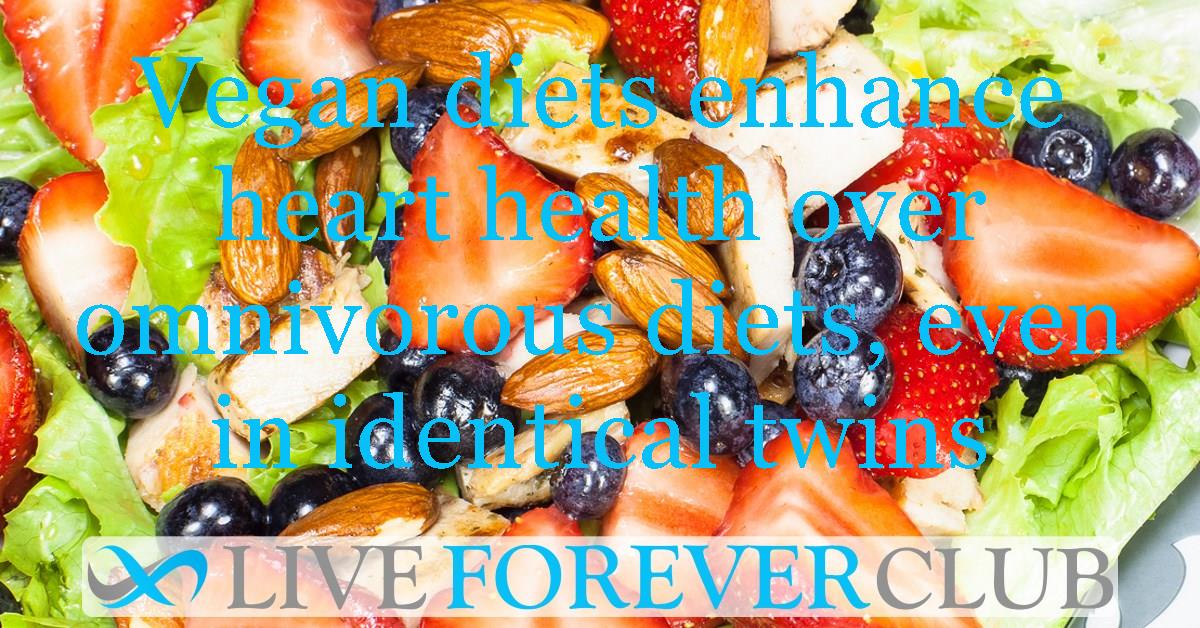The modern era has seen a surge in the popularity of plant-based diets, not just for their environmental benefits, but also for their potential health advantages. This interest has led to a growing body of research exploring the health implications of such diets, particularly in relation to cardiometabolic health. A recent study delved into this topic, comparing the effects of a vegan diet with those of an omnivorous diet in a unique cohort - identical twins.
Study Design and Participants
The research, a single-center, randomised clinical trial, involved 22 pairs of identical twins, each pair randomised to either a vegan or an omnivorous diet for eight weeks. This design allowed for the control of genetic factors that might influence the diet's effects on cardiometabolic health. The participants were primarily recruited from the Stanford Twin Registry.
Participants in both groups were initially provided with diet-specific meals from a meal delivery service, transitioning to self-prepared meals in the latter half of the study. The diets emphasised the consumption of vegetables, fruits, whole grains, nuts, and seeds, with the vegan diet excluding all animal products. The primary outcome measured was the change in low-density lipoprotein cholesterol (LDL-C) levels, with secondary outcomes including changes in body weight, plasma lipids, glucose, insulin levels, and other cardiometabolic factors.
Results
The study found significant improvements in the vegan group compared to the omnivorous group in terms of LDL-C levels, fasting insulin levels, and body weight. Specifically, the vegan group experienced a mean decrease in LDL-C concentration by 13.9 mg/dL, fasting insulin by 2.9 μIU/mL, and body weight by 1.9 kg.
What does this imply?
These results suggest that a vegan diet can offer substantial cardiometabolic advantages over an omnivorous diet, even within a genetically similar cohort. The study is notable for its unique approach using identical twins, which minimises genetic variability in assessing the impact of diet.
The implications of the study are both profound and far-reaching:
Healthcare and Dietary Guidance: The study's results offer strong evidence for healthcare professionals and dietitians to consider recommending a vegan diet for improving cardiometabolic health. This is particularly relevant for patients with high cholesterol, insulin resistance, or those struggling with weight management.
Personalised Nutrition: As the study was conducted on identical twins, it underscores the potential of personalised nutrition. Even with identical genetic makeups, dietary choices can lead to significant differences in health outcomes, highlighting the importance of individualised dietary plans.
Public Health Policies: The findings could influence public health guidelines and policies, advocating for more plant-based options in school cafeterias, workplaces, and public institutions. This could lead to a broader societal shift towards healthier eating habits.
Environmental Sustainability: With the increasing awareness of the environmental impact of meat consumption, the study provides additional motivation for adopting a plant-based diet, not just for personal health, but also for ecological sustainability.
Further Research and Education: The study may inspire further research into the long-term effects of vegan diets and their impact on different populations. It also highlights the need for educational campaigns to inform the public about the health benefits of plant-based diets.
Psychological and Social Factors: The study can lead to more exploration into the psychological and social aspects of dietary choices, such as the willingness to adopt a vegan diet and its societal perception.
In essence, this study serves as a critical step in understanding how diet impacts health, even among genetically identical individuals, and sets a precedent for future research and public health strategies focusing on nutrition and wellness.
Strengths and Limitations
Strengths:
- Genetic Control: A unique strength of this study is its use of identical twins. This approach effectively eliminates genetic variability, allowing for a clearer assessment of the dietary impact on cardiometabolic health.
- Randomised Clinical Trial Design: The study's design as a randomised clinical trial adds rigor and reliability to the findings. This design minimises bias and increases the validity of the results.
- Comprehensive Outcome Measures: The study did not just focus on one health parameter but included a range of cardiometabolic factors such as LDL-C levels, fasting insulin, body weight, and other lipid and glucose markers, providing a holistic view of the health impact of the diets.
- Real-World Application: The transition from meal delivery service to self-prepared meals in the study mirrors real-world scenarios, enhancing the applicability of the findings to everyday diet choices.
Limitations
- Small Sample Size: With only 22 pairs of twins, the sample size is relatively small. This limits the ability to generalise the findings to a broader population.
- Short Duration: The study was conducted over eight weeks, which is a relatively short period to assess long-term health impacts and sustainability of the dietary changes.
- Self-Reported Compliance: The reliance on participants' self-reporting for dietary adherence could introduce bias or inaccuracies in the data.
- Lack of Diversity: The participant pool, primarily sourced from the Stanford Twin Registry, may not fully represent the diversity in the general population, which could affect the applicability of the findings across different demographic groups.
- Potential Dietary Variability: While both diets were structured, individual differences in meal preparation and ingredient choices could introduce variability that may affect the outcomes.
Conclusion
This study provides compelling evidence of the cardiometabolic benefits of a vegan diet compared to an omnivorous diet, even in a genetically uniform group. The findings can guide clinicians in dietary recommendations and contribute to the broader understanding of dietary impacts on health.
Credits
This study was published in the JAMA Network Open. The research was conducted at the Stanford Prevention Research Center, Department of Medicine, School of Medicine, Stanford University, and funded by the Vogt Foundation and various grants.







